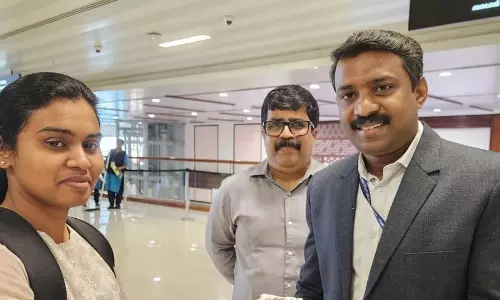
A university so anti-scholastic?
text_fieldsTo see how to make a central University established by emanating high hopes in the field of higher education, into an epitome of educational decline, all it takes is to go to Kasargod.
Central University- Kerala (Central University of Kerala -CUK)began functioning in 2013. The institution which was established under a special Act passed by the Parliament in 2009, is one which could have been able to creatively compete in the field of knowledge, communication, education and research, with other central universities that were established in different states of the country around the same time. About 20 post-graduate degrees, research facilities in different subjects and study centres in several places- it started functioning by opening a plethora of prospects that should enrich a university. However, within five years, the University has become eligible to be counted as the perfect example of regressiveness in the field of education. The University is currently facing a huge bunch of allegations such as inefficiency in governance, biased approaches, anti-scholastic attitude that does not put up with thought, dissent or freedom of expression, contempt and negligence displayed towards educational values due to passion for hardline Hindutva and retribution against students and teachers.
If students and teachers form a fundamental constituent of an educational centre, they are generally the victims in CUK. All the departments, right from the administrative leadership to the subordinate sections, function this way. It was only recently that the Vice Chancellor removed teacher and scholar Dr Prasad Pannyan, from the post of Head of Department of English-Comparative Literature . There had been a situation where a Dalit research scholar was arrested and jailed for days following a complaint to the police by the authorities. Dr Prasad put up a post on Facebook expressing his angst and protest in the matter and this led to the action against him. The student had broken the glass pane of the fire extinguisher cabinet in the University hostel. Although the tendency to damage public property cannot be justified, the action taken against him for a trivial crime was disproportionate, particularly when one remembers that the shock of his mother's death and the non-receipt of his research fellowship for months had put the student in deep agony. Prasad had committed the 'crime' of critisising the inhumane action of the authorities of handing over the student to the police. He had shared his concern over the severe punishment in an issue which could have been resolved inside the campus.
Not only did the University take a unilateral stand which does not allow any criticism or differing opinion, but also banned the teachers from talking to the media. Another incident was the expulsion of a MA student Akhil Thazhath for his Facebook post questioning the appointment of staff with Sangh Parivar connections and neglecting the old employees of the hostel and office. The action of cutting down two months' increment from the salary of Assistant Professor Gilbert Sebastian had invited controversy. For this action, the reason given was not talking to the media or posting on social media but writing to the VC questioning the expulsion of another teacher. The move by the authorities, who oppose any action of disclosing the internal matters, of spreading the details about the action taken against Dr Prasad in advance through WhatsApp, had also become controversial.
It has been pointed out that it was after the NDA government took office that this central university rapidly put on a saffron colour. Students and faculty who question this are subjected to vindictive action. While it is divergence of views and dissent that make campuses vibrant, CUK is nosediving into an abyss of monolithic culture and intolerance. Persistent efforts are being made to Hindutvaise the university. Numerous reports come out about appointments marked by nepotism and corruption. The communalization that follows them has created an atmosphere of fear in academic circles, students and teachers. What rules there is an internal rot and fright quite unbecoming of a citadel of knowledge – and no one is in a position to share this anywhere either. Examples are cited of anti-women and anti-Dalit attitudes. When an atmosphere in which thought, utterance or writing anything attracts expulsion, an external enquiry is needed to uncover and solve the internal decay. And UGC should be able to make the right intervention and resolve matters.
The number of cases is just a demonstration of the extent to which communalization has plagued the functioning of the university. Cases in the high court relating to irregular appointments, nepotism and anti-Dalit actions number not one or two but a whopping 70. Among actions questioned are CUK's unilateral and unjust actions ranging from violation of reservation to denial of PhD enrolment. The university is coughing up a huge amount to run these cases which means itis forced to pay a heavy price for the inefficiency of authorities. But the cost of litigation is not all, it also affects adversely with CUK getting an anti-academic image. Meanwhile, the Executive Council that met recently in Thiruvananthapuram has also recommended CBI enquiry into the irregularities in appointments made five years ago. In short, the only serious research being made in CUK is on how a university should not be run. If this is let go as it is now, a higher education institution established with noble goals will perish before long.

















